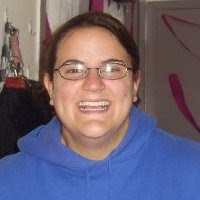My personal experience with a touchy subject was told in a previous post. The child I was tutoring asked me a question that I could not answer and she said that it was ok because she and her dad were going to prey for answers. This was early on in my service learning and I just replied with an ok. Thinking about it now I should have asked how she felt about people who didn’t prey or preyed to different things. Recently two students were telling me how I should get a car so I could visit them when I was done with college. I told them I had no money and one said to just have my parents get it for me. I proceeded to tell them that my parent s had no money too. One stated that they knew what I was talking about, but the other said that their parents always had money. I didn’t push the issue past saying that he was lucky. In response he lowered his head and continued playing the game. This made me think that it might be all a front and he was saying things to make himself seem better or cooler than the others.
Author of Citizenship in School: Reconceptualizing Down Syndrome Christopher Kliewer talked about something called Human Reciprocity. This is the idea of a society where everyone works together and each member is valued for what he/she brings to the group. It could be their culture or their ideas but everyone helps each other to better everyone’s lives. At the time these events at my school happened I did not know how to explain this concept to elementary students so I let them just continue with the felling that the student with money was better than the one without. I know they felt that way because that is how I felt.
Another theorist that helped me prepare for another encounter like those above is Lev Semenovich Vygotsky. His thoughts on higher ordered thinking (the thing that makes us all unique), was that: first, it happens between children and society through communication. And then once those children learn to make concepts and think logically on their own, those ideas the child learned through their culture contributes to their individuality. To me he is saying that what we teach and say to children help develop them into the adults they will become. In that statement a lot of pressure is put on the backs of the older generation the children interact with. We can teach them to value all their peers or how to hate them. In this thinking a quote from Spiderman comes to my mind that best describes the responsibility teachers have. “With great power, comes great responsibility.” We have the power to plant seeds that shape the future of the world.
Thinking about it now, in all the situations that the children put me through I would have asked them questions. Questions dealing with things they may have never been ask before. Like other religions and what is so great about having money? And in the end ask them, do those things/differences change how you view others? Knowing that what I say will impact them for the rest of their lives.

WE ALL MUST CHOOSE WHAT WE WILL TEACH,THE GOOD OR THE BAD?



